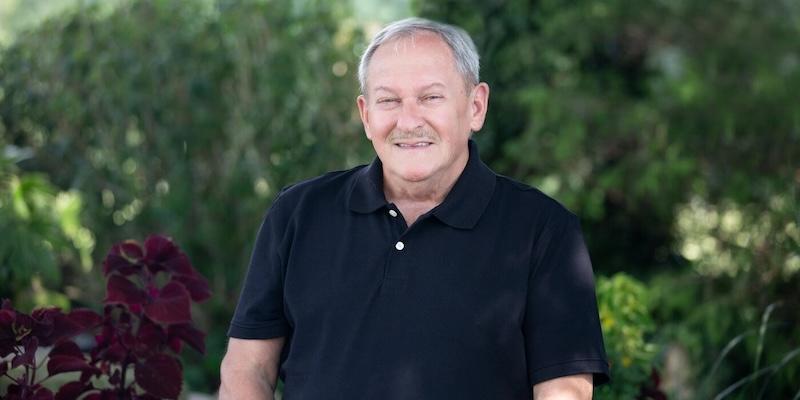Offering Alternatives: Partial Laryngectomy Preserves Voice Function

When a patient is diagnosed with laryngeal cancer, the traditional treatment for advanced or recurrent disease is a total laryngectomy — removal of the entire voice box. But at Duke Head and Neck Surgery & Communication Sciences, we’re always looking for ways to treat our patients that preserve as much quality of life as possible.
When Dale Jessup’s laryngeal cancer recurred in 2019, his local doctors recommended a total laryngectomy, after which he would be required to breathe through a hole in his neck and would prevent him from speaking.
He connected with Duke’s Russel Kahmke, MD, for a second opinion. Dr. Kahmke approaches cancer cases with the goal of curing patients, but that’s not the only consideration. “You also need to be aware of the effects of that treatment on swallowing, speech, breathing, appearance and other critical functions of the head and neck. The patient needs to take all of these into consideration before making their treatment decision,” Dr. Kahmke said.
Dr. Kahmke examined Mr. Jessup using an endoscope and found that the tumor was above the vocal cords on the supraglottic larynx. With the location of the tumor and Mr. Jessup’s overall good health, Dr. Kahmke felt he was a candidate for a partial laryngectomy — which would preserve the vocal cords and allow Mr. Jessup to breathe and speak normally.
When possible, Dr. Kahmke looks for less invasive approaches for patients. “More is not always better — there needs to be a clear understanding of the goals of care, outcome expectations, and a plan on how to achieve success,” he said.
The surgery was a success, and Mr. Jessup was able to achieve his goals.
“His goal was to be able to talk,” Dr. Kahmke said. “As doctors, we can't always give people what they want, but in Mr. Jessup's case, I’m glad we were able to preserve his function and also treat his cancer successfully.”
With swallowing therapy and voice therapy, Mr. Jessup has made steady progress. He has to avoid certain foods, and he has trouble breathing in hot, hazy weather or if he gets a respiratory virus. But he is glad he found Dr. Kahmke.
“There was something about Dr. Kahmke that I trusted,” he said. “I had to put my faith in God to guide his hands.”
Dr. Kahmke credits the Duke Head and Neck Surgery & Communication Sciences team and Duke University Health System as the reason he was able to offer another option to Mr. Jessup.
“Doing partial airway surgery requires highly trained physicians, nurses, respiratory therapists, speech pathologists and staff who have the necessary skill and equipment to manage their care throughout the entire perioperative process,” Dr. Kahmke said. “I have benefited greatly from exceptional training and mentorship but could not provide these services without the entire team.”
To schedule an appointment with a Duke Head and Neck Surgery & Communication Sciences expert, call 919-439-1870.
To refer a patient, call 800-633-3853 or use DukeMedLink.